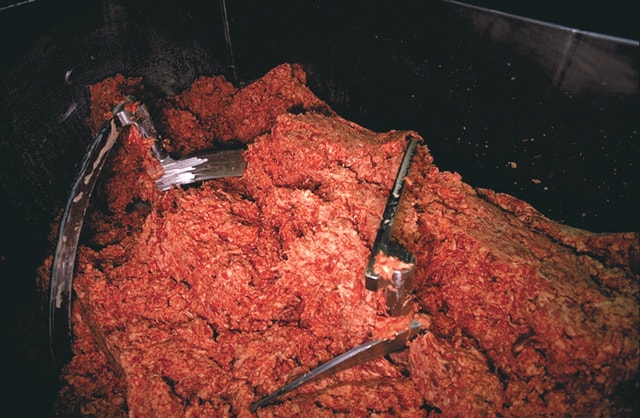When some fast food retailers and supermarkets in Europe were found to be passing off horse meat in processed food packages, it caused something of a scandal in those countries, such as the United Kingdom, where there is a general taboo about the consumption of horse meat.
Considering that most people in the United States are similarly averse to eating horses, could a similar scandal unfold in that country?
Americans eating horse meat without knowing it

Is it legal to buy and eat horse meat here in the U.S.? And if so, what does it taste like?
According to huffpost:
While it’s legal in most states to buy and sell horse meat, we couldn’t find a supplier here in the U.S., where the last horse slaughterhouse closed years ago. However, we were able to find a wide selection of horse jerky from a small company in Wales and have some shipped to our offices in New York.
But is it any good? We decided to do a blind taste test to see if people could tell the difference between horse and beef — and to see which they liked better.
The results might surprise you.
While most of our fifteen contestants (66 percent) were able to correctly identify which meat was which, the beef jerky’s taste earned only slightly higher ratings than the horse. Some contestants actually preferred the horse.
Slaughtering horses for meat production was effectively illegal in the United States between the years of 2006 and 2011 because there were no funds available for horse slaughterhouse inspections due to a lack of demand for this public service. This changed in 2011 when President Obama’s administration re-authorized the funds. Since then it has been legal in most states to slaughter horses for meat, although there are no slaughterhouses for horses in the United States. However, it has always been legal in almost every state for companies and individuals to buy and sell horse meat which was imported from abroad.
This means that it is theoretically possible that imported horse meat could have been slipped into consumer’s food without their knowledge. However, this is very unlikely to have occurred because there are no slaughterhouses in the United States meaning that the cost of imported horse meat would be significantly higher than meat which is produced on a mass scale in the country, such as beef or chicken.
But despite the fact that the United States does not appear to have any domestic trade in horse meat, animal rights activists still say that there is a cause for concern. The United States has allowed for horses to be shipped to slaughterhouses in both Canada and Mexico where the eating of horse meat is more socially acceptable. According to animal rights groups, this is an incredibly cruel practice, and the animals sometimes have to endure brutal treatment while they are being transported across the border and that the slaughterhouse conditions are often poor and result in prolonged and painful deaths.

